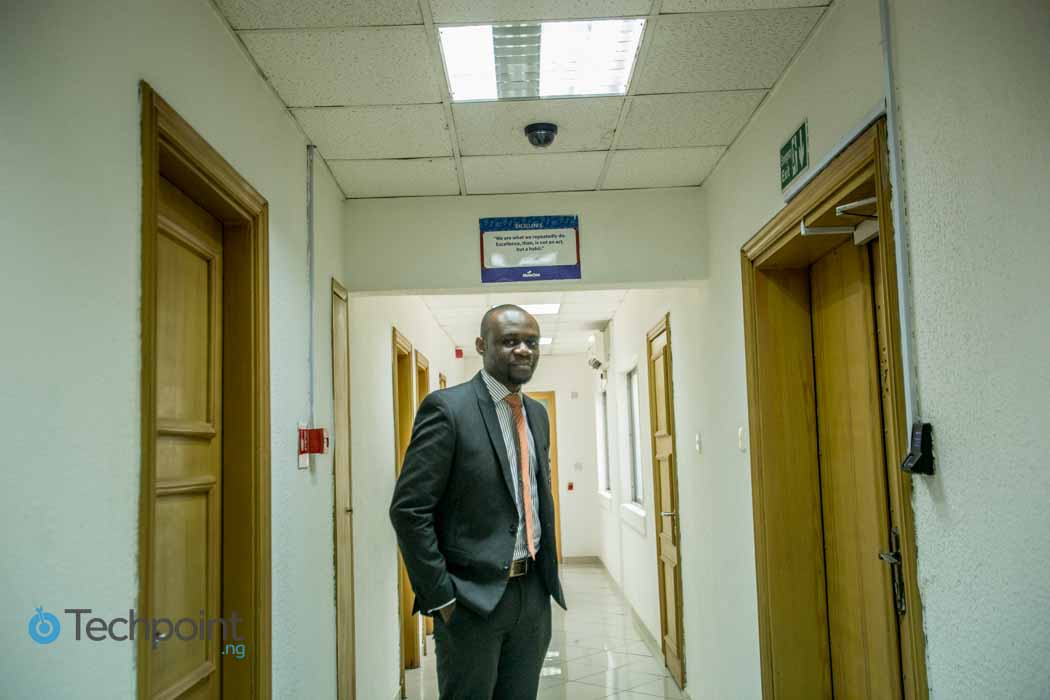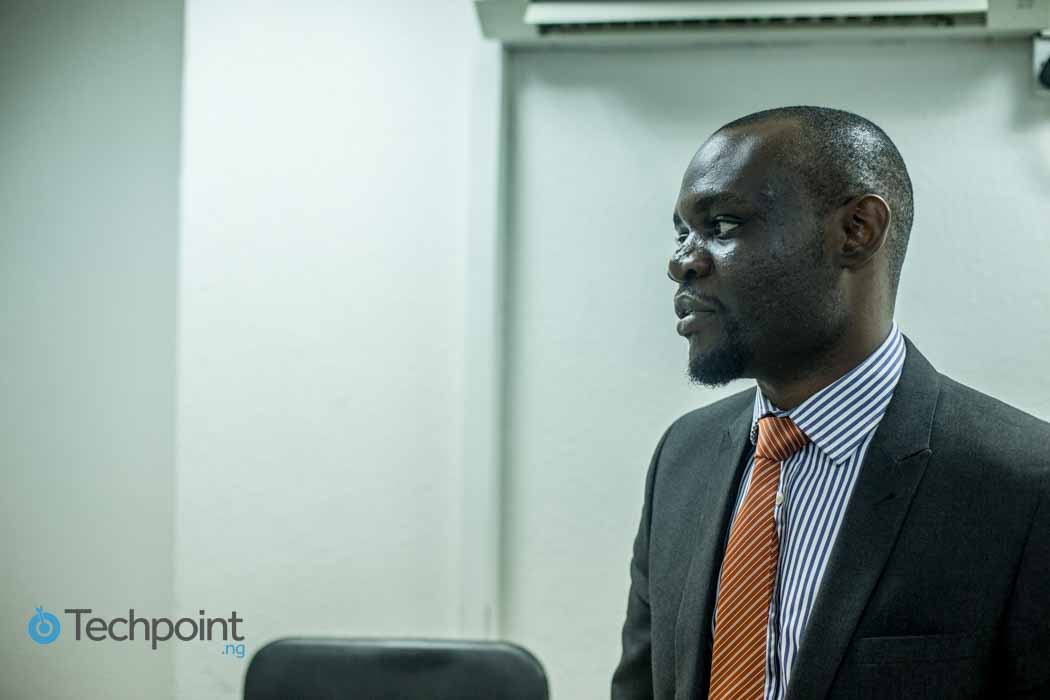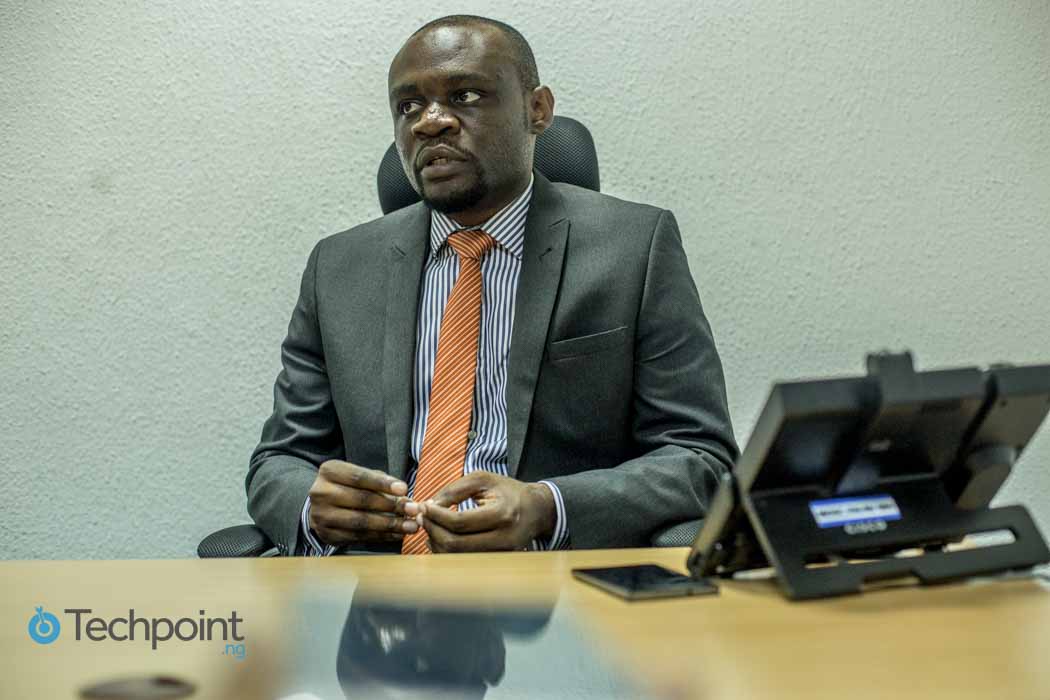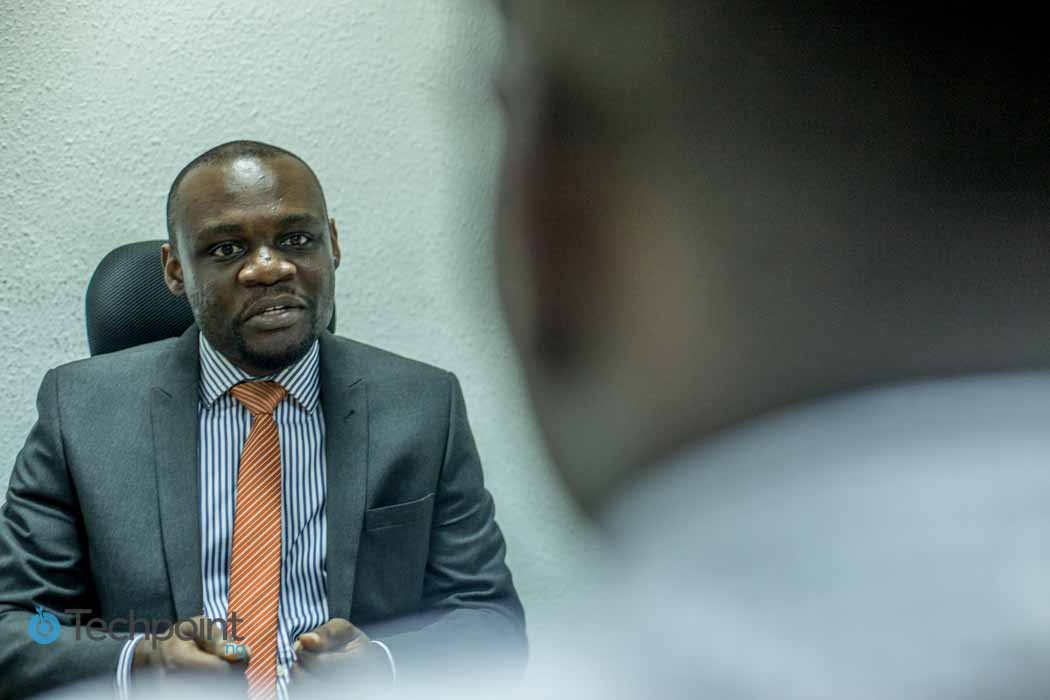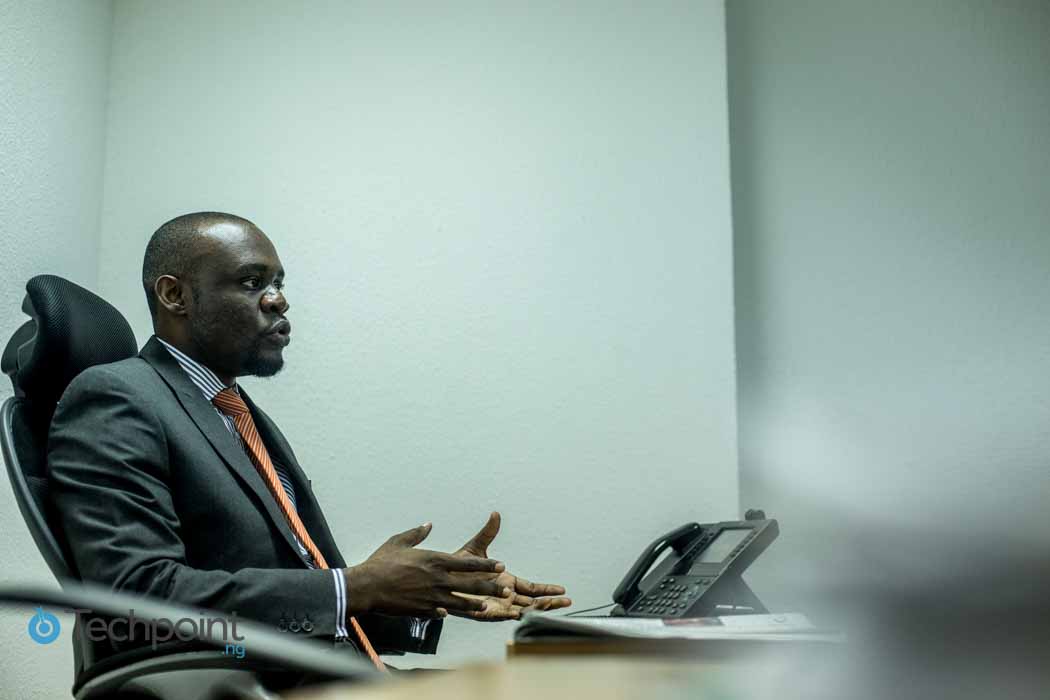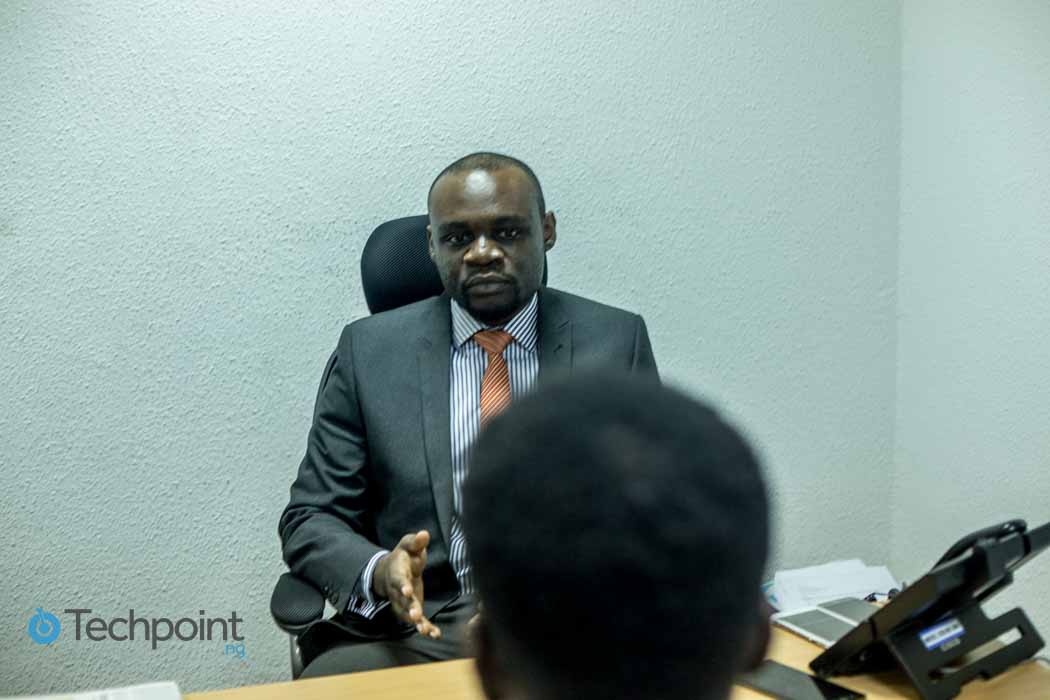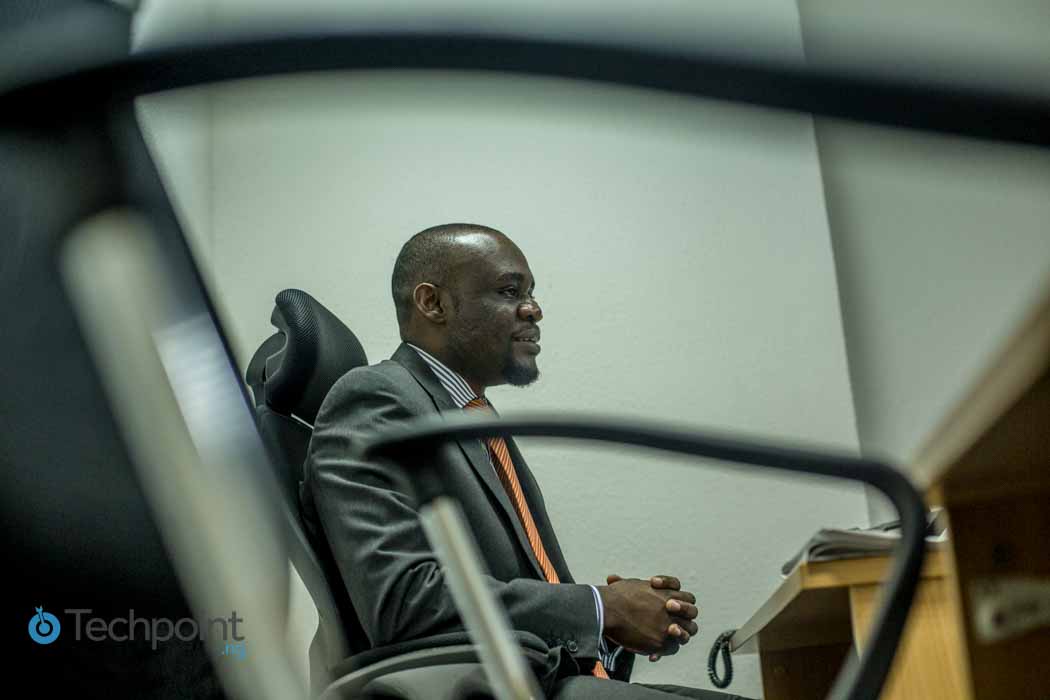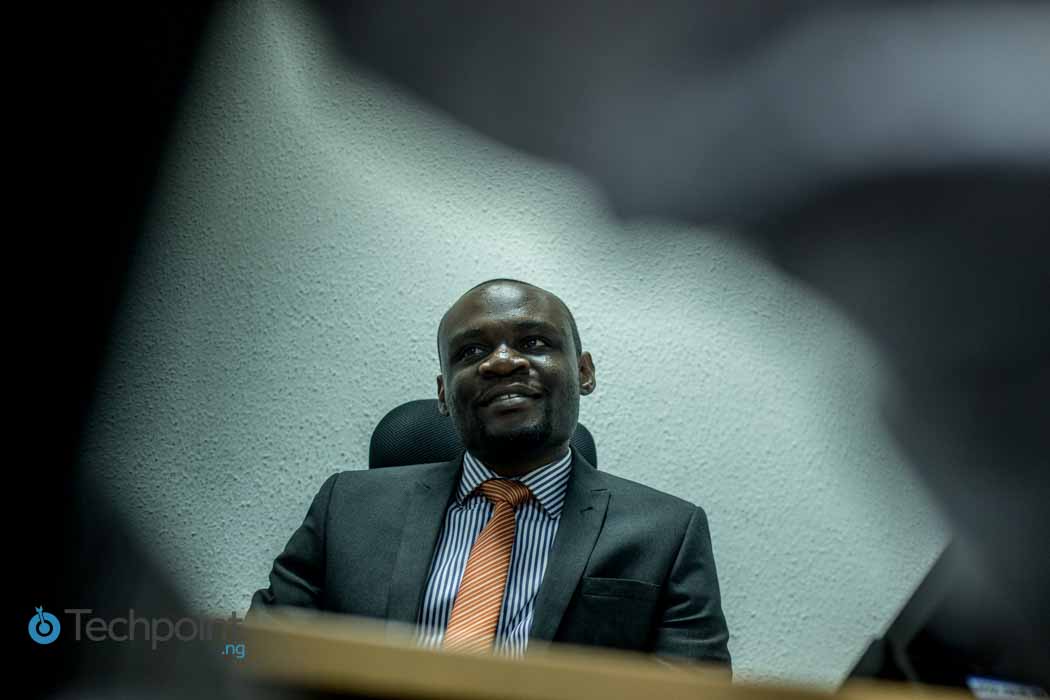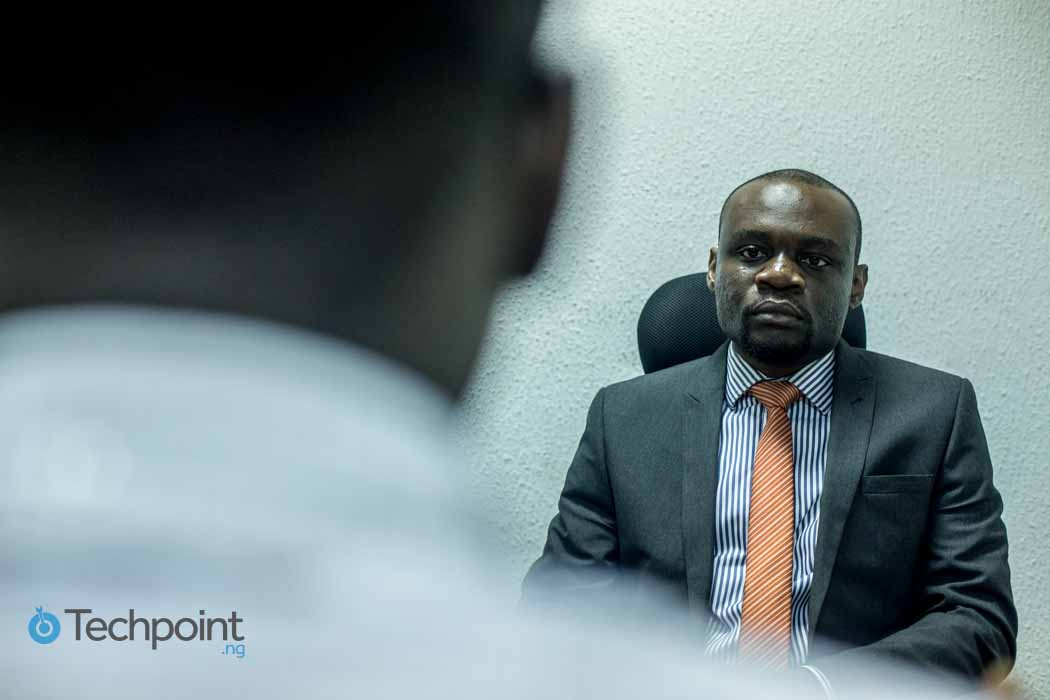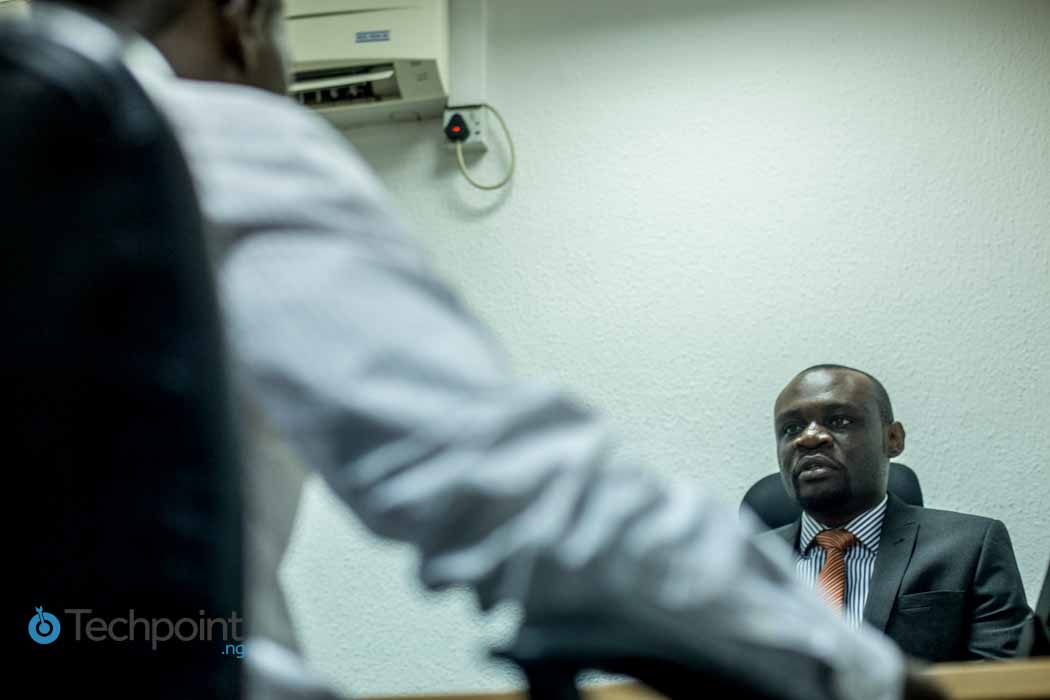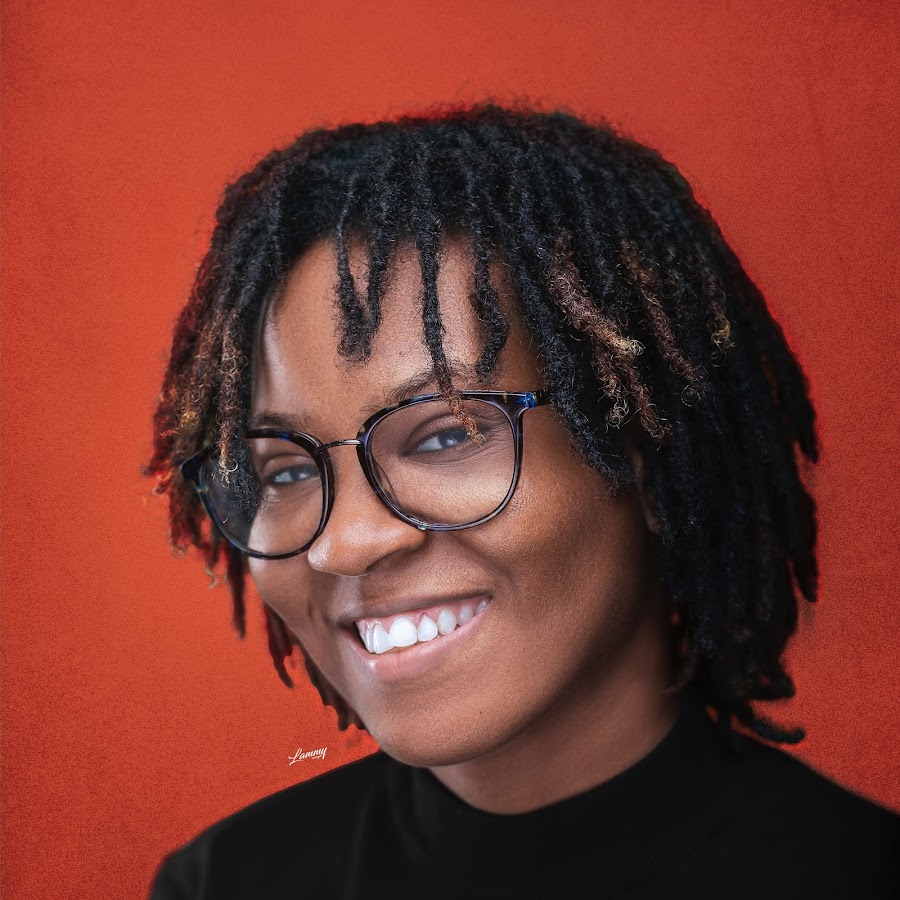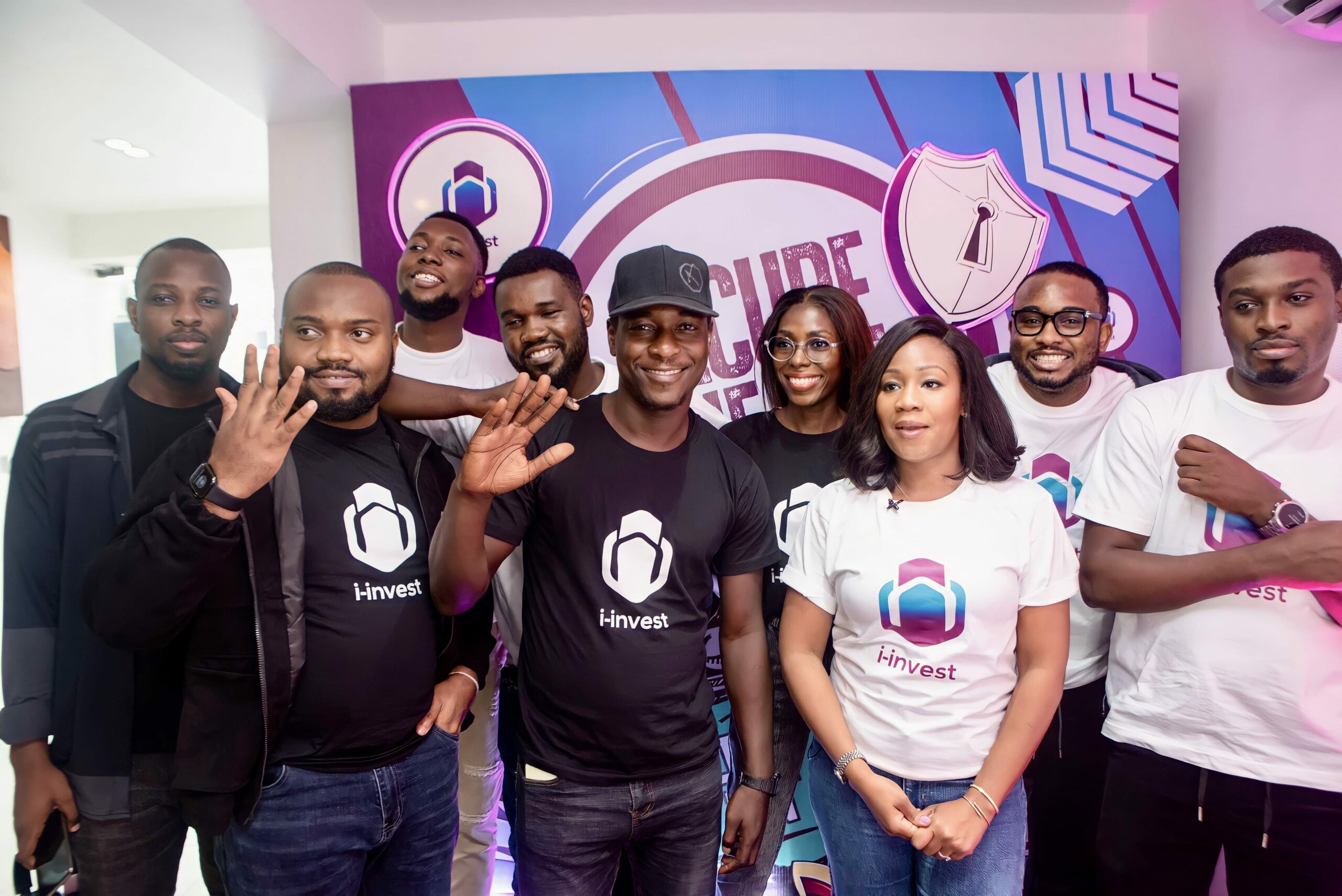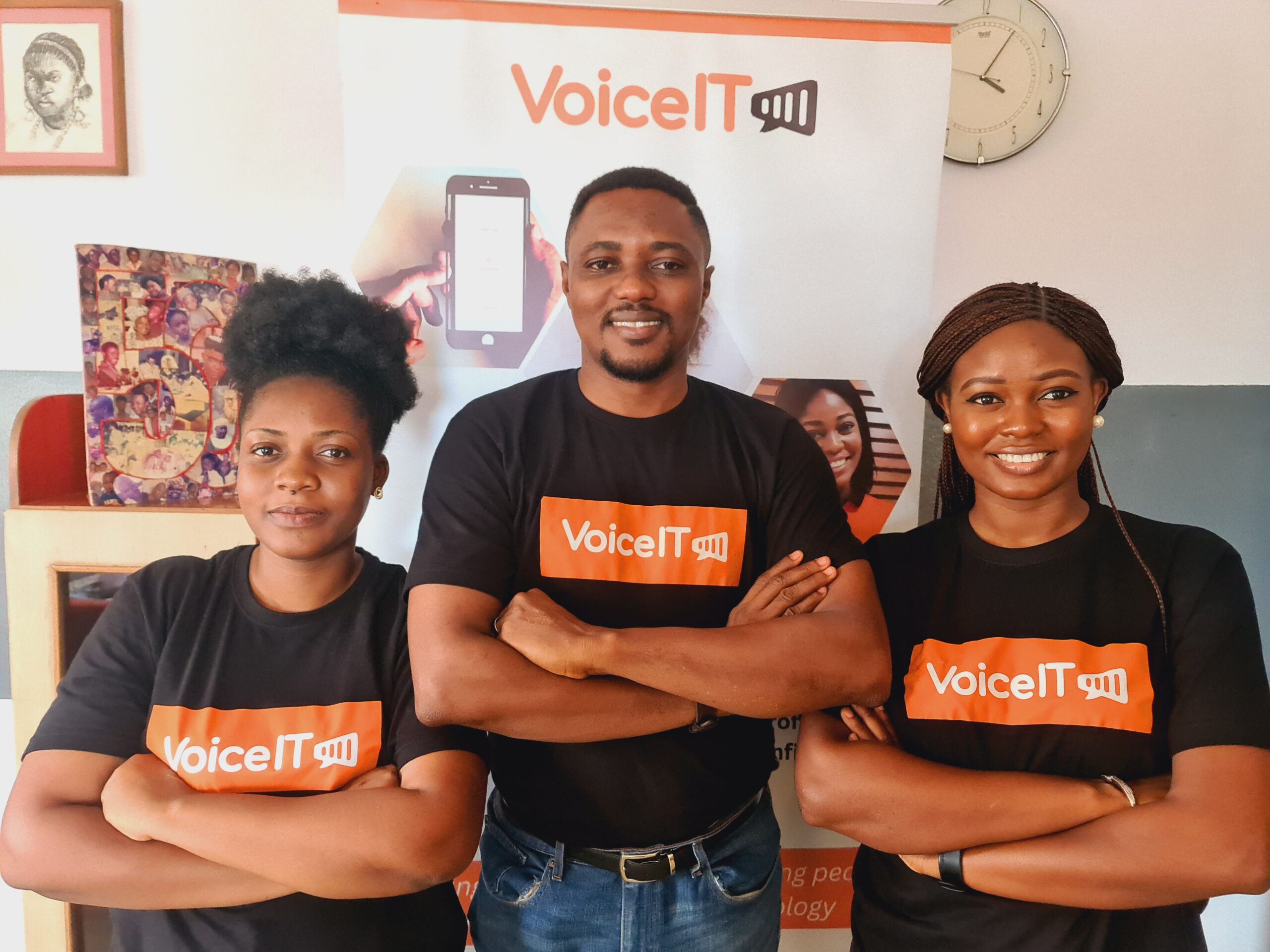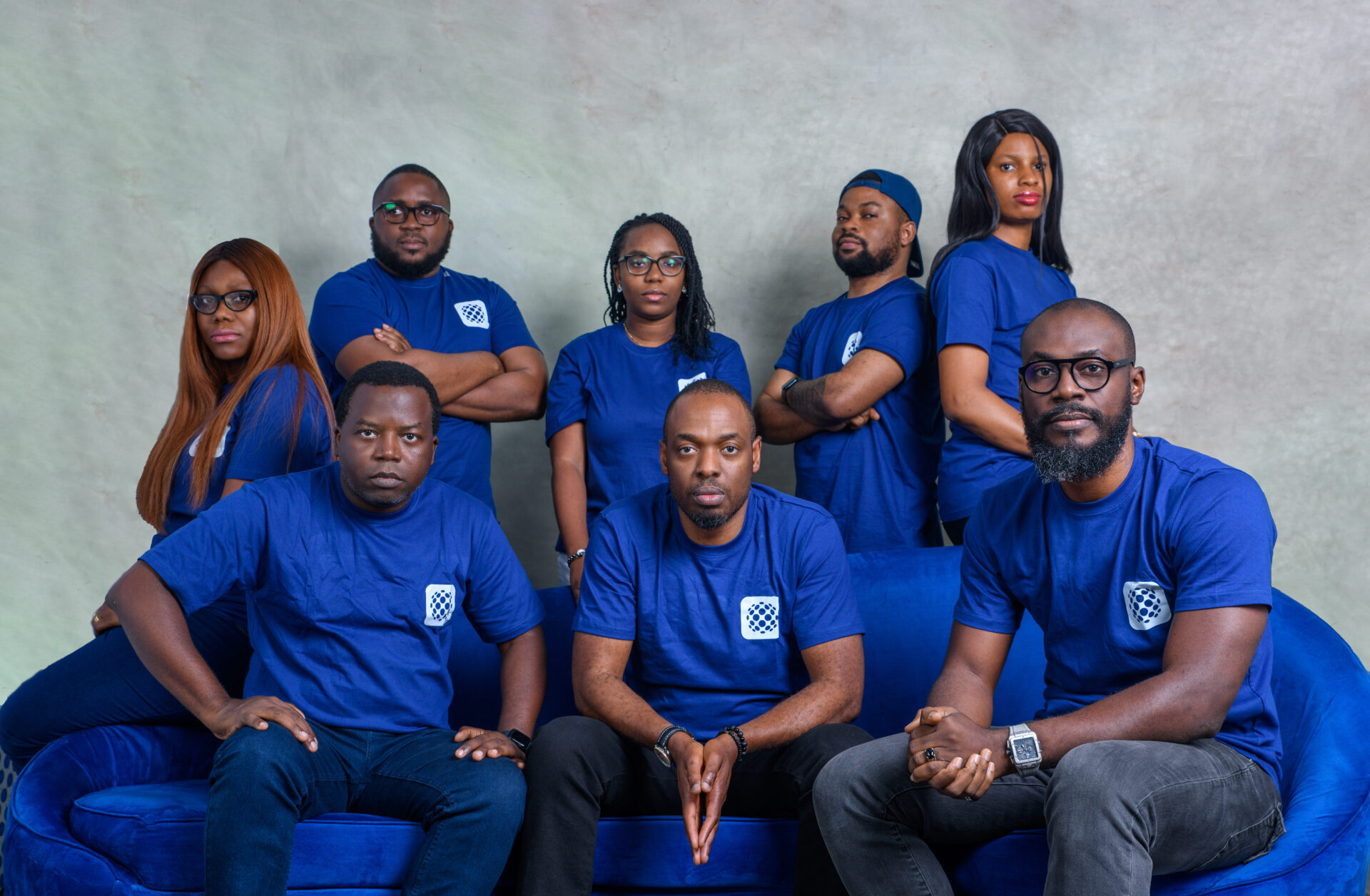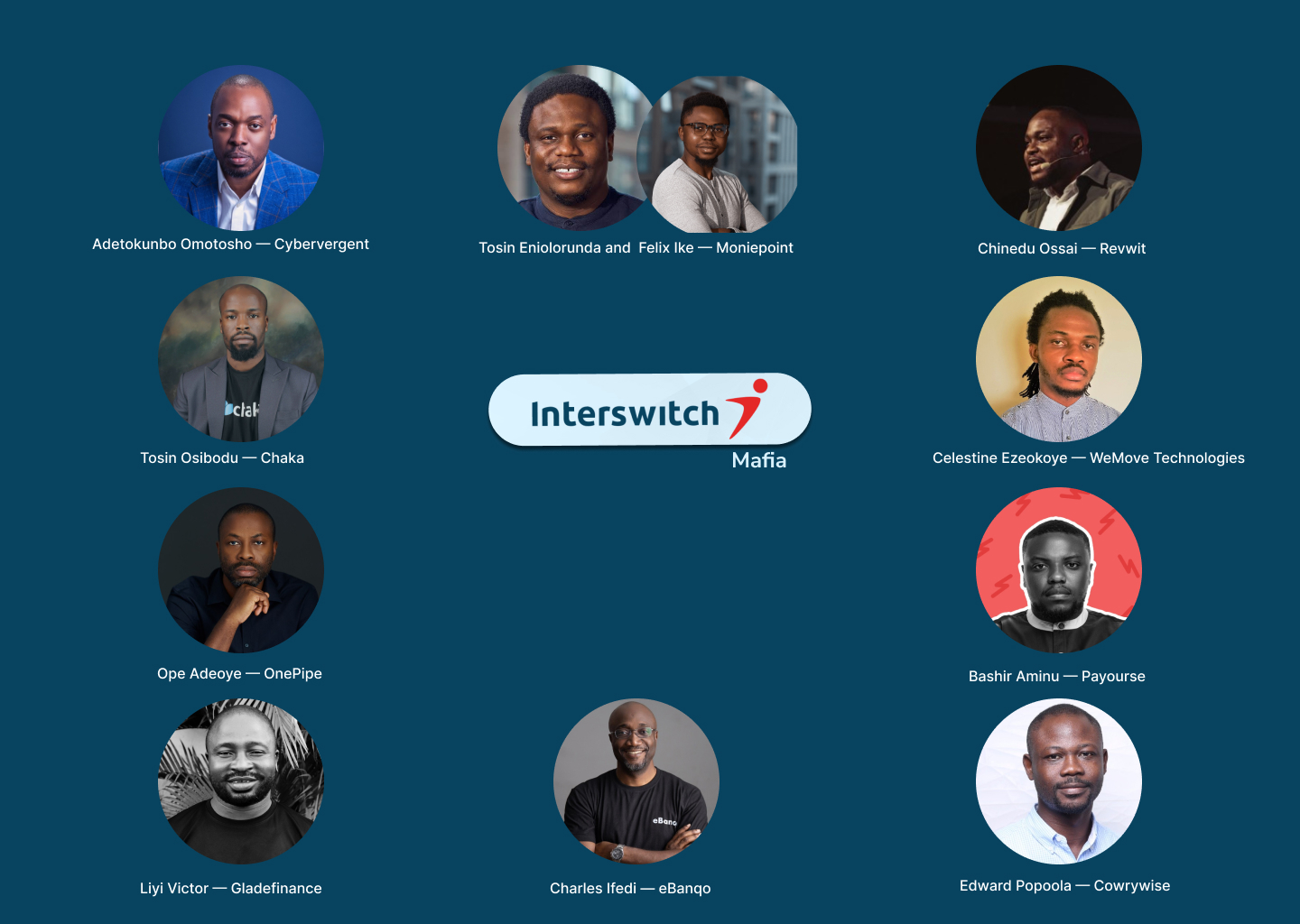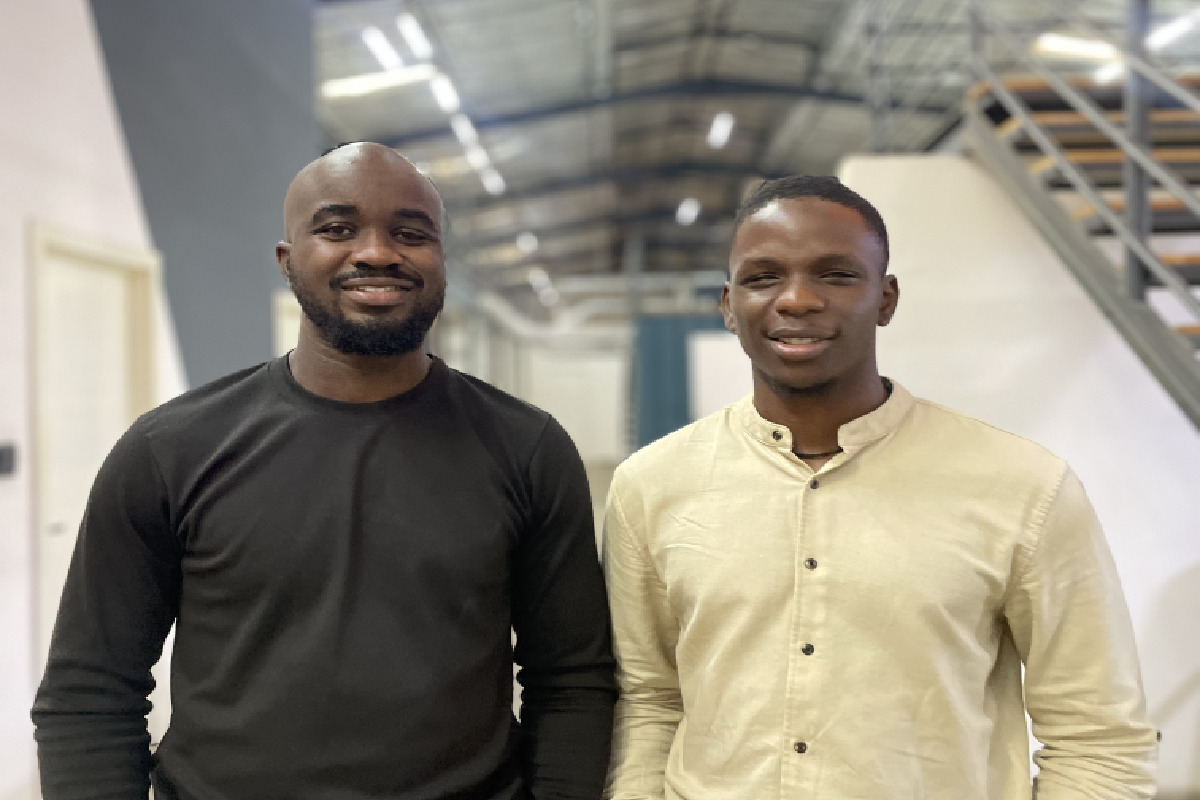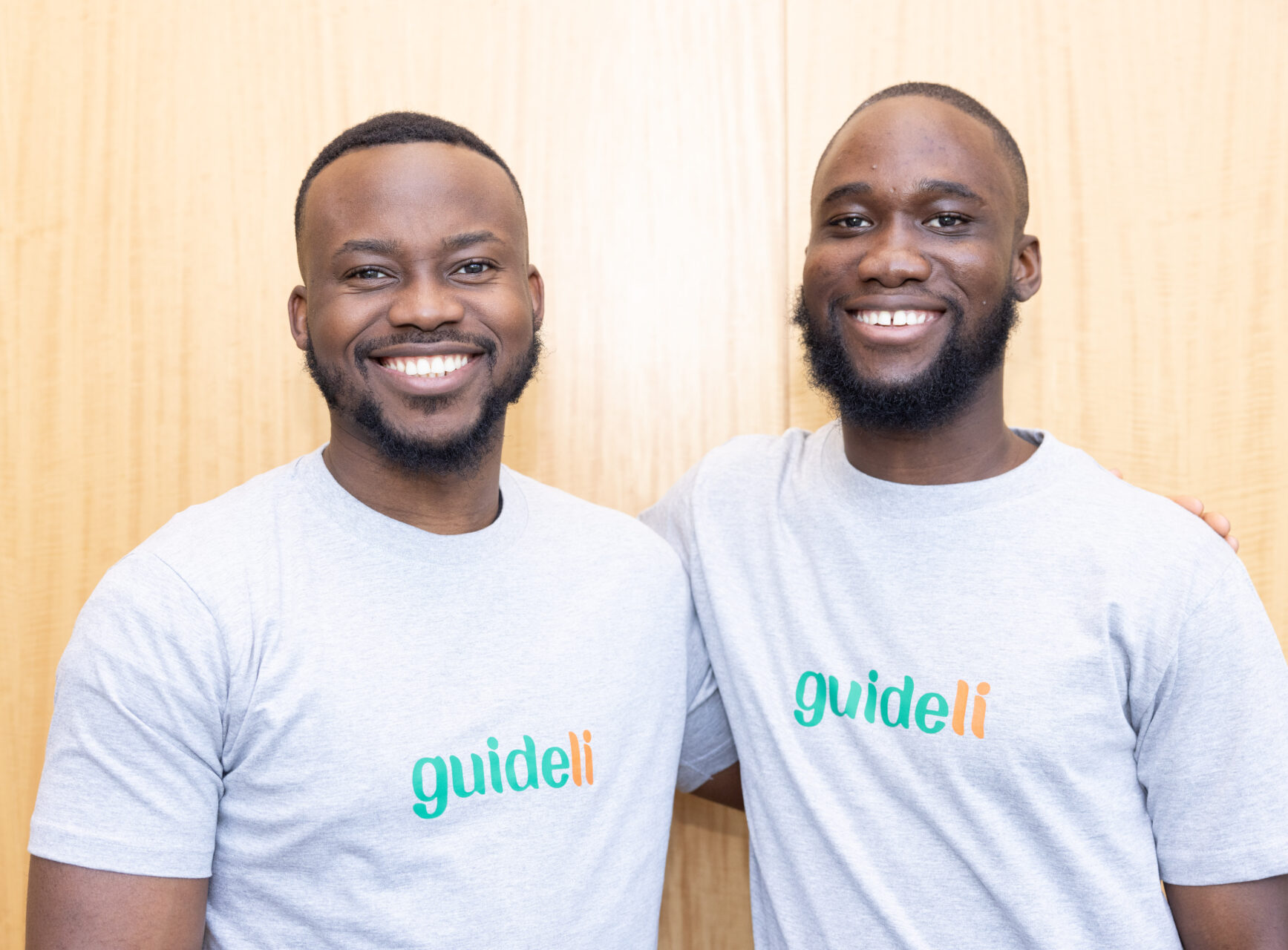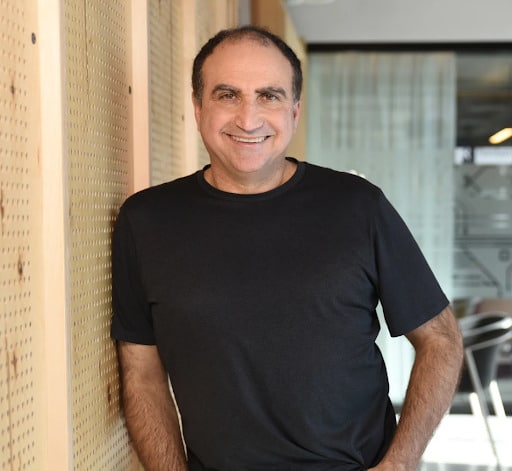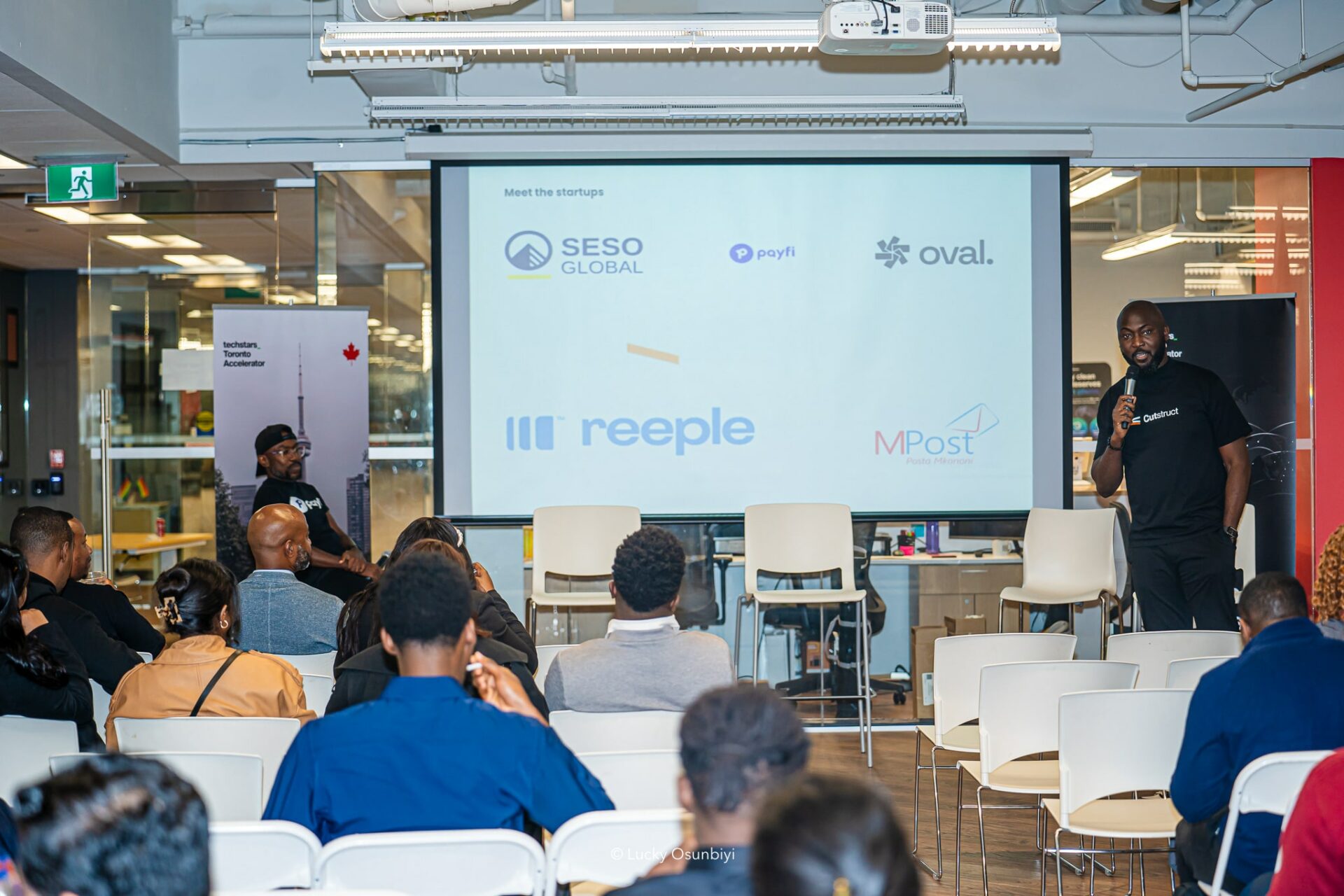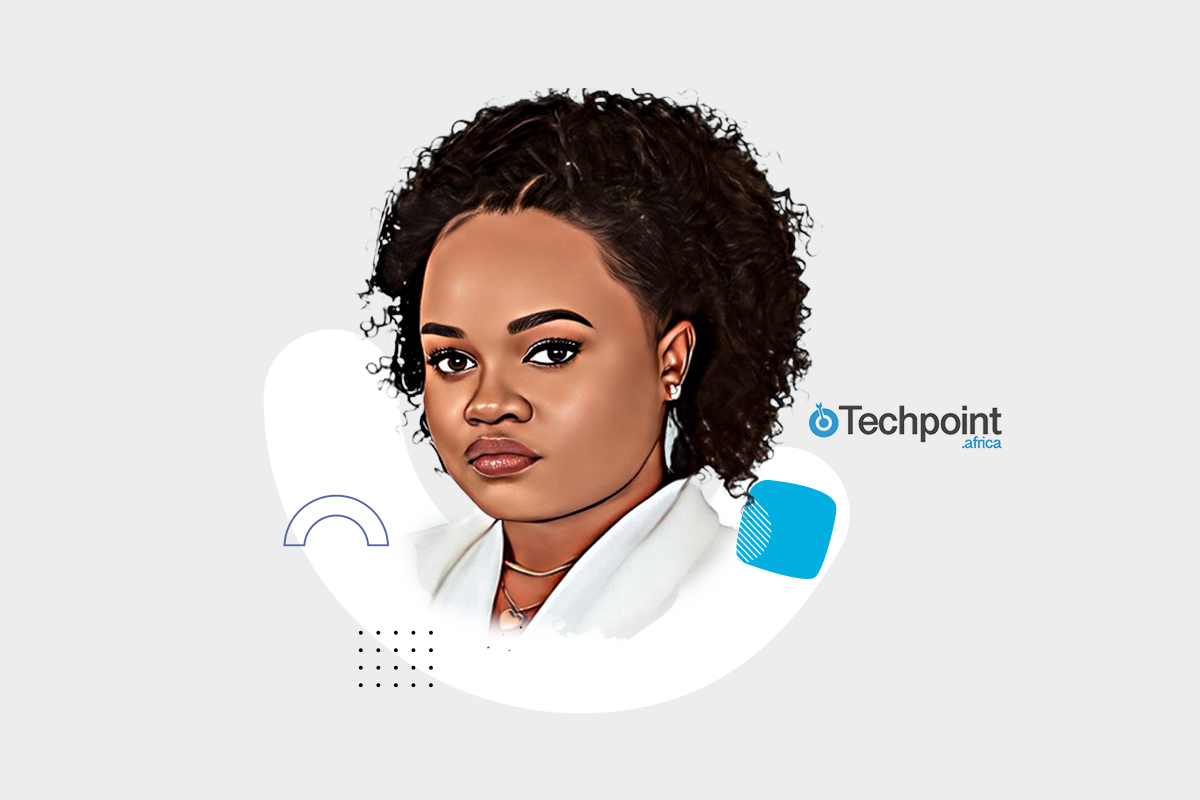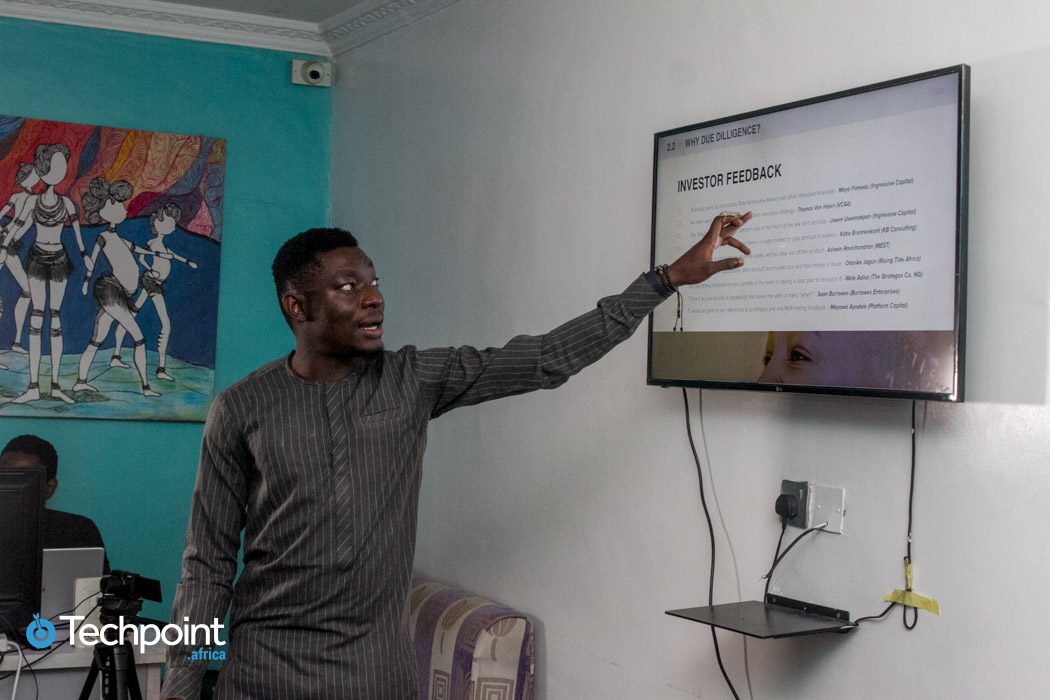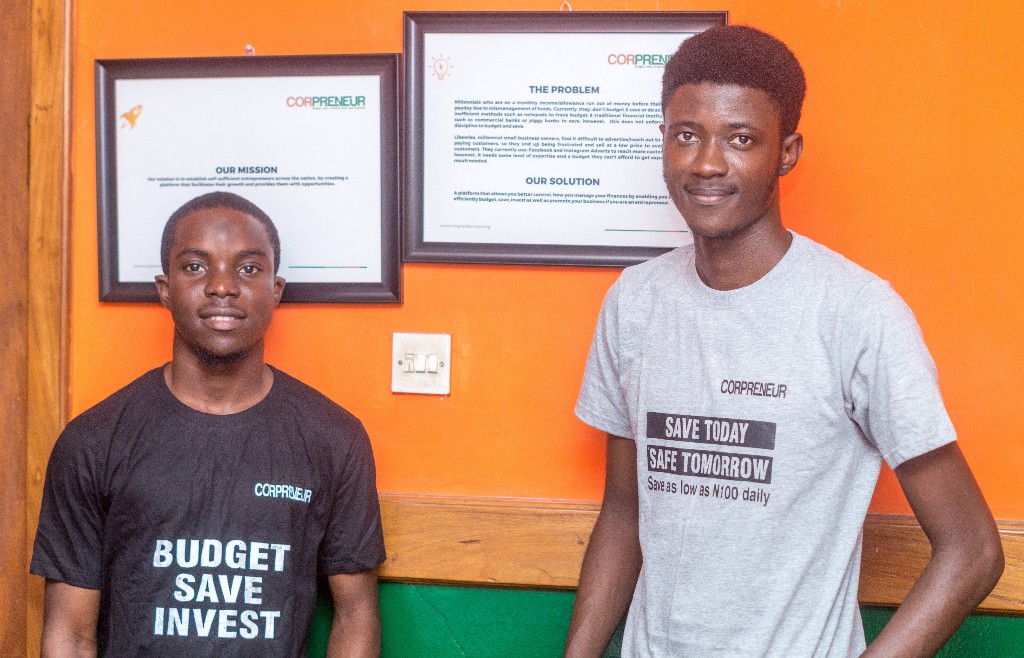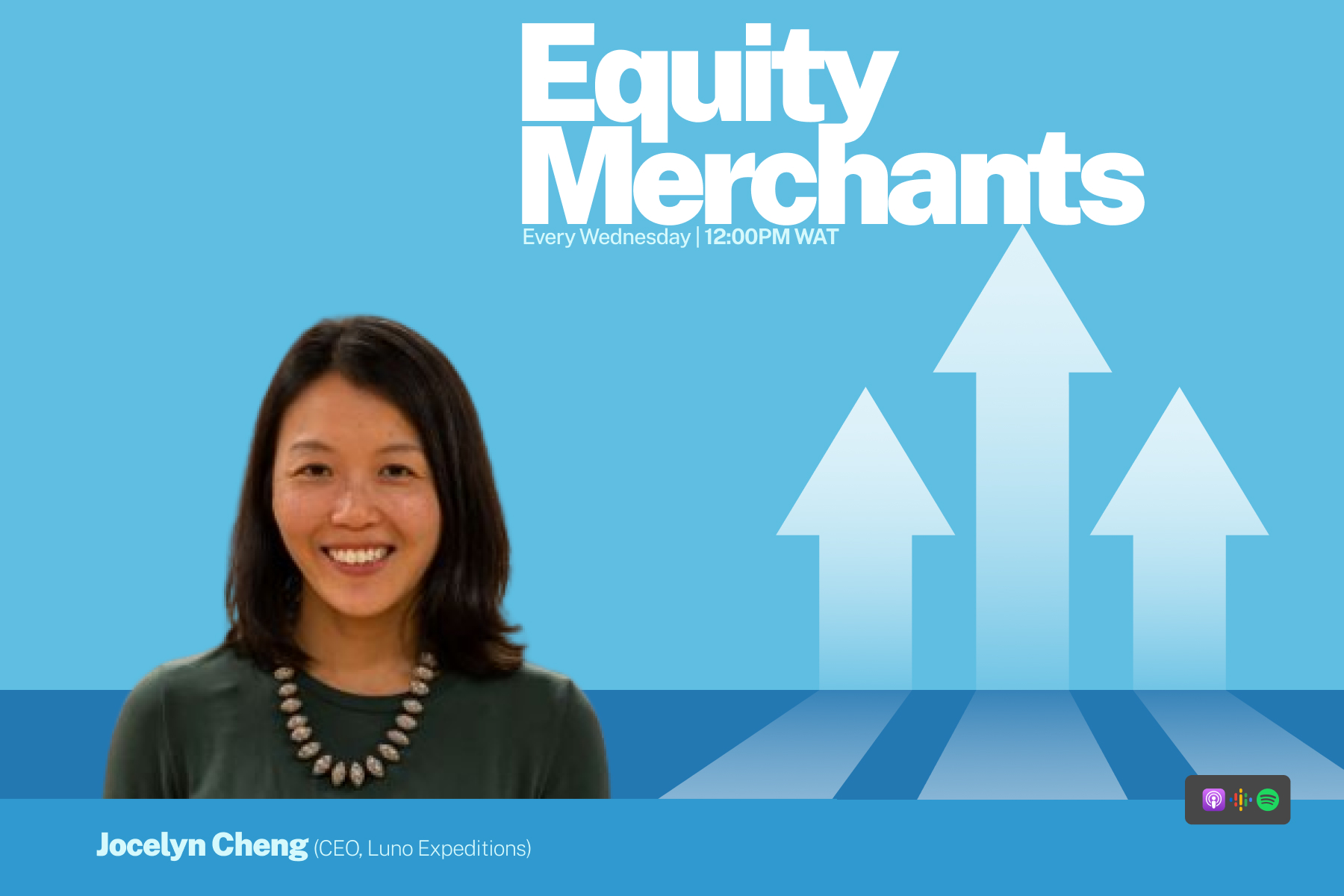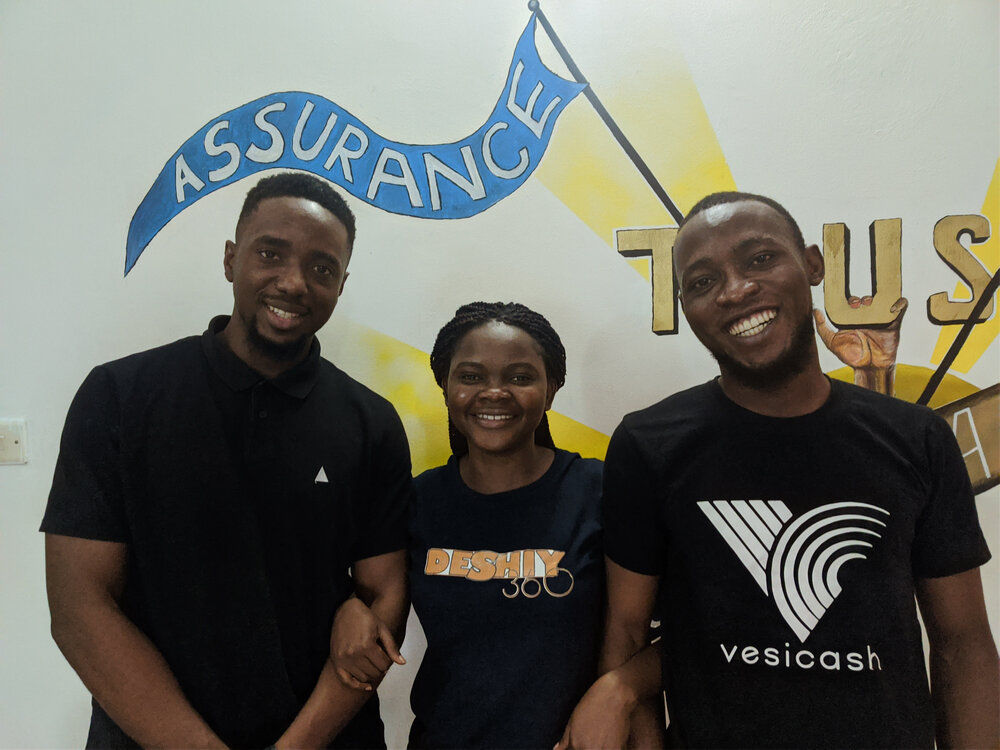Finding a career path isn't as easy as they say it is. Several individuals quit their jobs and switch disciplines in order to align their passions with work.
Today on Engine Room, we get up close with Egomaron Jegede. Egomaron has a computer engineering background and currently is the Technical Project Manager for the MainOne Capital Projects Team. Though born in Zaria, Nigeria, Egomaron grew up in three continents, sharing his childhood memories between Nigeria, Australia and the United States of America (US).
Having grown up seeing different cultures, Egomaron sees the world as a global village that has taught him how to adapt and blend with adversity.
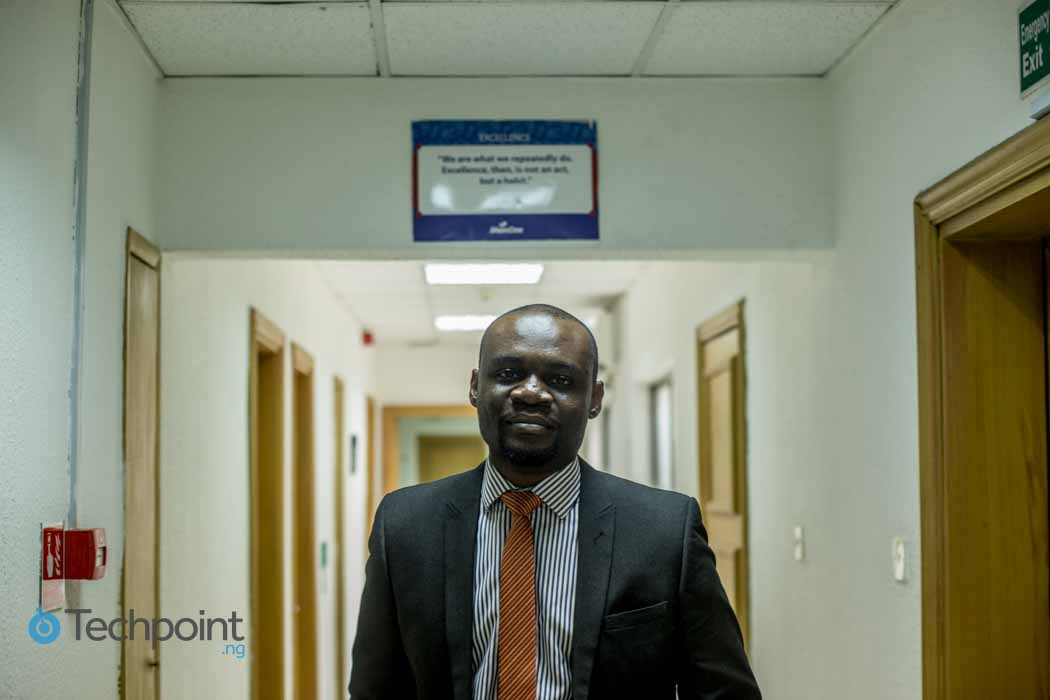
Emmanuel Ogunsola of Techpoint: According to your LinkedIn profile, you played technical roles in some technology oriented companies before MainOne. Where would you say your love for technology started from?
Egomaron Jegede of MainOne Capital Projects: I put that on my dad, he loves technology. In the 80s, he brought one of the first computers that used punch cards home with him from the UK. After that, my dad got a huge thick Toshiba laptop which displayed only black and green graphics and used floppy disks.
Whenever he wasn't around I tried playing with the laptop. I remember unsuccessfully trying to install Mortal Kombat using twelve floppy disks and being scared of getting into trouble because it was my dad's laptop.
My dad would often hand me the manuals of electronic devices so I could install them myself. When I look back I think that is what gave me that initial love for technology and engineering.
EO: Listening to you, it seems you had an interesting childhood. How was it like growing up?
EJ: I come from a family focused on education and strong christian values. My dad is a professor and my mom is a doctor. They both have advanced degrees, are extremely brilliant and got scholarships all through their education. I have four sisters, one is a doctor, one is a lawyer, one is in HR and another is into art and communication. Since it is a standard Nigerian family, I am the engineer.
Growing up in my house, you were not allowed to come second. I remember coming home once with a grade C in one of my classes at Purdue University. I think it was my first C. Prior to that, I had always been on the dean's list every semester with almost 4.0 grade point average. My dad ignored the other As and focused on the C, wanting to know what happened.

Suck at managing people?
Give it a try, you can unsubscribe anytime. Privacy Policy.
EO: Choosing to study outside Nigeria for your undergraduate studies, was it your choice or your parents?
EJ: I think it was both ways. My parents put a premium on education; in 1987, they moved the family to Australia to further our education. We were there for ten years. I had my primary -- and the first two years of secondary -- education in Australia before we returned to Nigeria where I completed my secondary education.
While in Senior Secondary class 2, I took the Scholastic Assessment Test (SAT) for the sake of practice. Then in Senior Secondary class 3 I took it again. I had uncles in the United Kingdom (UK) whom I had visited so I knew I didn't like the UK versus the US. For some reason internally, I knew I wanted to be in the US. It is funny that, as naive as I was then as a child, it actually panned out.
My dad was pivotal in, and supportive with, the college application process. I also wrote the Joint Admission Matriculation Board exams too. At the time my SAT scores were good enough and some Universities in the US wrote to me offering scholarships and invitations to campus. I think Boston College, Moore House College and a few other colleges in the US wrote to me offering admission.
I did my first year at Wayne State University in Detroit. But my Uncle who is a chemical engineer had worked with some faculty members at Purdue University. So he recommended that if I was studying engineering I should go to Purdue University. After one year in Detroit, I transferred to Indiana and continued my studies at Purdue University.
EO: Looking back at the high demands your parents placed on you, would you use the same approach for your kids?
EJ: I definitely will inculcate some aspects because it is important to have a high standard for excellence. Too many people these days are used to giving excuses. I will not say you necessarily have to be first but you have to give your best, utilising all the resources available to you.
I see that education in Nigeria is a bit strict in terms of trying to force people into science or art. There's a natural brilliance in children that gets educated out of them. You end up thinking you are not as fantastic as you are because you can't do a trigonometry equation when truly, you can write music better than anybody else.
For the next generation, I prefer to find the talent in every child, that is outside of the traditional educational model, hone and encourage that talent and at the same time make sure they have the grounding and basics they will need to support that talent.
But I think education these days is a lot more flexible. I will always push for a standard of excellence. If you focus on excellence it will carry you through every aspect of your life. You need to look at trying to be the best and continuously improving. It is not okay to be 29th out of 30 and think you have done something.
EO: After your undergraduate studies, what was is like after leaving the University and what influenced your decision to move back to Nigeria?
EJ: Motorola had just put out the Razr phone so things were flying high for them and they needed more engineers. A friend called me up about the opening at Motorola and I went for the interview. As God would have it, I was hired by Motorola and I started working there.
What helped me is that we had career counseling and people that prepare students for interviews on campus. That is one thing that is lacking here in Nigeria. Professionally I interview people now and they have a compelling story but they don't know how to present themselves.
A lot of the lessons learnt in family and university prepared me for the working world. Being an international student came with it's challenges like Visa and so on. It wasn't as easy compared to a student that grew up in America with all the scholarships and reduced tuition. The interesting thing I found is that almost 90% of the black engineers at Motorola were Nigerians. The other 10% were African-American.
I came back to Nigeria to do my National Youth Service Corps (NYSC) primarily but I also wanted to work at a Nigerian company. I had the opportunity when I came back to Nigeria to work at Motorola but they didn't do mobile devices here in Nigeria. Then I had the option of working at Chams Plc. I had worked at Motorola for about four to five years so I wanted something a bit different and Chams looked like they had an interesting profile.
Chams was a huge learning experience I must say; quite diverse in what they were doing. In 2010, they were trying to push a portal called Naira.com which was intended to be a travel portal. They were also interested in eCommerce and mobile payments so we had to do a lot of work with the Central Bank of Nigeria and the regulators.
They were also working on the National ID card project as well at the time. It was great to see a Nigerian firm that was involved in technology across the board. For me the travel portal was the most interesting one because we had to visit a lot of hotels here within Lagos and talk to them about getting registered on our portal. That helped me to quickly learn my way around Lagos.
That was over five years ago before the likes of Hotels.ng came to the picture. We faced challenges in trying to convince people that uploading their information on our portal would be good for their business. But it was a great experience to be a part of the early days of eCommerce in Nigeria.
EO: What influenced your transition from Chams to MainOne?
EJ: I had read about MainOne and it seemed like they were doing some very interesting things in terms of bridging the digital divide. They were trying to provide the same internet speed to Nigerians as anywhere else in the world. So I could see a career for myself at MainOne.
EO: You were one of the lead Project Managers for MainOne's first data centre. How challenging was that?
EJ: I could write a book. The fantastic thing about joining MainOne early is that it was like a multinational startup. There was a small team with gigantic amount of work to be done. At that time the submarine cables had been laid. We hadn't expanded to our first point of presence in Ikeja, we were still primarily a cable company laying fibre terrestrially.
My initial role as a project coordinator had a steep learning curve because this wasn't mobile phone development, nor was it directly related to computer engineering or computer science that I was very familiar with. This was technology project management across various aspects of technology.
At that point in time we actually didn't have a procurement officer so because I was driving a lot of these projects I became the default procurement officer. So I found myself wearing a lot of different hats. The breadth of my knowledge and my own approach had to change. I had to step out of thinking I was just a computer engineer and start to be whatever the business needed me to be to succeed at that point in time.
The challenges were extremely fast-paced with lots of projects happening simultaneously. So I had to be able to deal with a lot of pressure as a project manager and interact with all kinds of people from labourers to executive officers.
EO: At what point did you consciously decide to make the move to become a certified project manager?
EJ: When I look back at my job at Motorola, we were integrating all the different chipsets and aspects of the phone together. So my role had some aspects of project management in it and integration of various stakeholders to achieve a certain purpose. At Chams, doing the eCommerce project, I wasn't necessarily technically hands-on but I was managing people uploading content.
So all those things broadened my view of what I thought I could be. This broke me out of the mould of thinking I was just an engineer. Once I started at MainOne as a project supervisor it was a conscious decision to do the project management training which really helped in terms of understanding and putting more structure to what I had been doing even in procurement because there's a lot to learn in PMP.
It took me to a whole new level when we were developing the MDXi, our Tier III data center. I had looked at the project management framework and adapted it to what we do at Main One.
Suggested Read: EXCLUSIVE: Inside MainOne’s top secret Data Centre in Lagos.
We created our own project management methodology. I wrote the manual here at MainOne because we moved so fast and dynamically, so I had to find what worked for us. Once we started developing the data centre, we could see how we needed a structured management for a mega program of projects. So we needed a framework to help manage all the different work streams. I don't think there is anyway to do that without some background in project management.
EO: Most Nigerian startups I have observed are faced with a common challenge that has to do with process management. Is there a way startups can be more process-driven, without needing a lot of capital, to make sure that they are shipping the best products out?
EJ: I think that the benefit that a lot of startups have now that people didn't have before is the wealth of publicly available information. There are even templates for processes that are available online. There are a lot free courses available for startups. I think it is really up to the young tech entrepreneurs to educate themselves based on all the information they already have available and the good thing is that there are a lot of startups who are offering services to other startups whether it is in finance or accounting.
They are doing it at rates that are cheaper than going to buy a full SAP solution. My advice will be to take advantage of all the publicly available information but find other startups who are in the business of helping people setup their processes at affordable rates. You will be surprised that there are a lot of people who are interested in having startups succeed and willing to provide that information at a discounted or advisory rate. The more startups that we can promote, the more employment we have the safer and better the society, community and country. Its more holistic than an individual company.
EO: For younger, upcoming engineers, what are the takeaways or pieces of advice that you would like to share with them?
EJ: What I found mentoring interns at Motorola and here at MainOne is that you need to be excellent at whatever you want to do. Look at what your strengths are and pray about it. Try to speak to mentors and people who have gone ahead of you to understand what the different parts are. Discover what your passions are and work extremely hard to be the best you can. The other thing is to stay curious and ask a lot of questions and don't become stagnant.
There's a quote I came across that says "yesterday's excellence is mediocre today". That really hit me powerfully because it means whatever I was doing in 2014, that made me an excellent employee of the month, is mediocre today so I need to continue to move progressively.
The other thing I will say is to be intentional. There is something I am doing right now which is a twenty-year plan. So I look at where my life was five years ago in different aspects maybe spiritual, financial, family, relationships and look at where I am now. You can see some trends, some of them are natural while others are subconscious. You can see where you are now and project where you want to be in the next five to ten years. It is not to say that you will get there or that your plans and priority wouldn't change but having some kind of sign post will guide your other efforts.
Most importantly I tell most of my interns, it is not just about getting that information and using it to benefit yourself. You need to find a way to pass on all the information that you have to your friends and also to the next generation. You can't be afraid to share knowledge and information. Also, find a way to impact your community and make it better.

